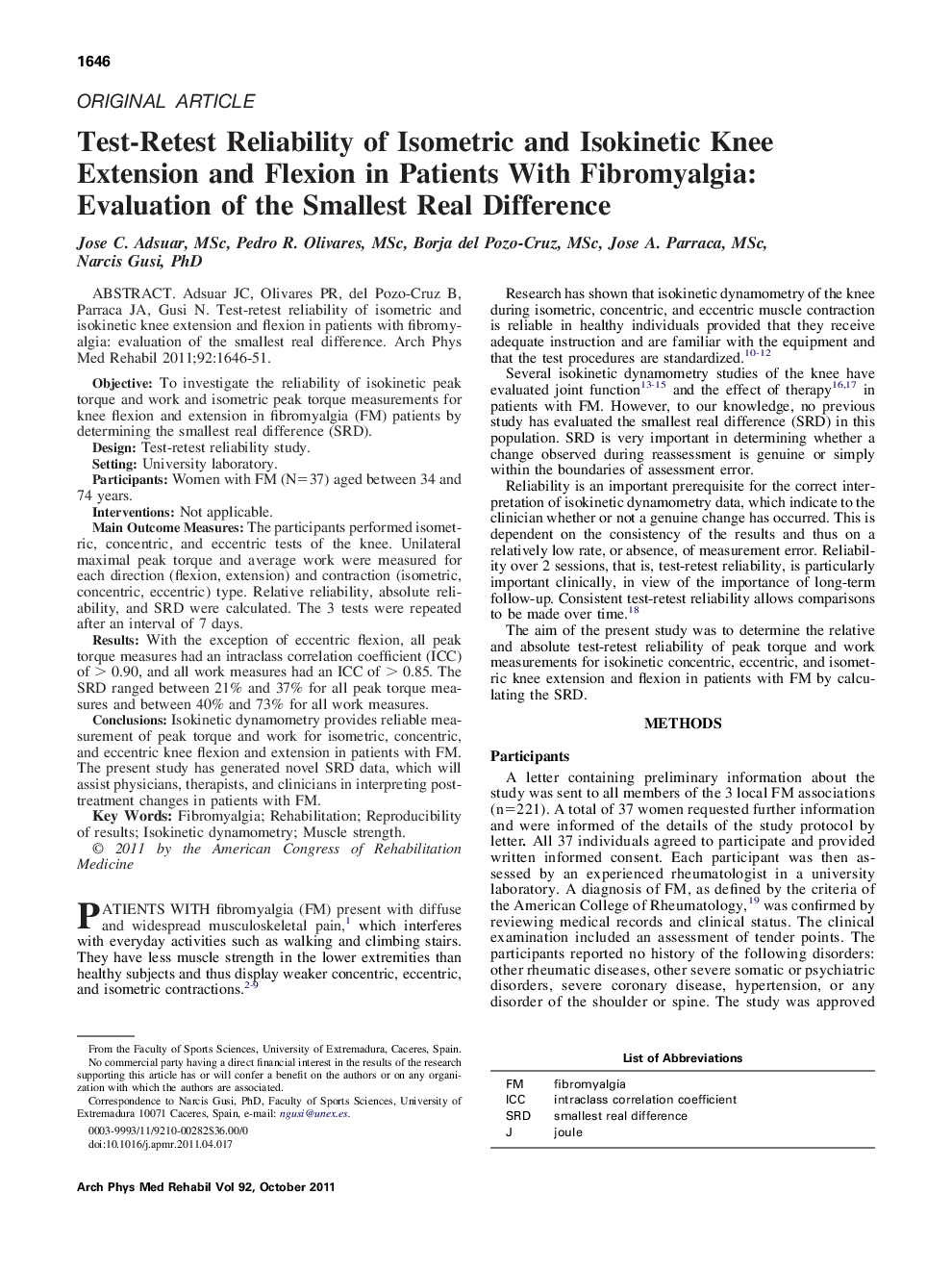| Article ID | Journal | Published Year | Pages | File Type |
|---|---|---|---|---|
| 3450074 | Archives of Physical Medicine and Rehabilitation | 2011 | 6 Pages |
Adsuar JC, Olivares PR, del Pozo-Cruz B, Parraca JA, Gusi N. Test-retest reliability of isometric and isokinetic knee extension and flexion in patients with fibromyalgia: evaluation of the smallest real difference.ObjectiveTo investigate the reliability of isokinetic peak torque and work and isometric peak torque measurements for knee flexion and extension in fibromyalgia (FM) patients by determining the smallest real difference (SRD).DesignTest-retest reliability study.SettingUniversity laboratory.ParticipantsWomen with FM (N=37) aged between 34 and 74 years.InterventionsNot applicable.Main Outcome MeasuresThe participants performed isometric, concentric, and eccentric tests of the knee. Unilateral maximal peak torque and average work were measured for each direction (flexion, extension) and contraction (isometric, concentric, eccentric) type. Relative reliability, absolute reliability, and SRD were calculated. The 3 tests were repeated after an interval of 7 days.ResultsWith the exception of eccentric flexion, all peak torque measures had an intraclass correlation coefficient (ICC) of > 0.90, and all work measures had an ICC of > 0.85. The SRD ranged between 21% and 37% for all peak torque measures and between 40% and 73% for all work measures.ConclusionsIsokinetic dynamometry provides reliable measurement of peak torque and work for isometric, concentric, and eccentric knee flexion and extension in patients with FM. The present study has generated novel SRD data, which will assist physicians, therapists, and clinicians in interpreting posttreatment changes in patients with FM.
